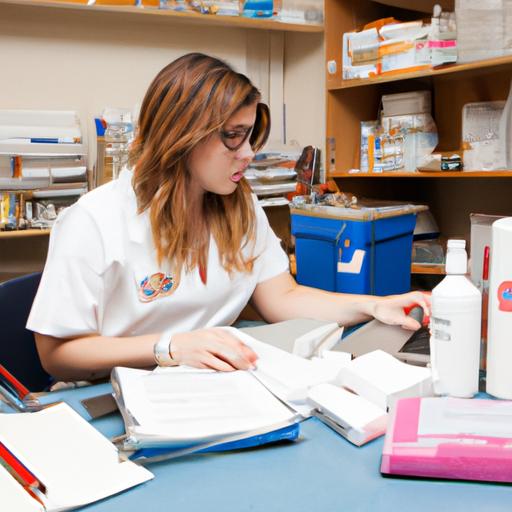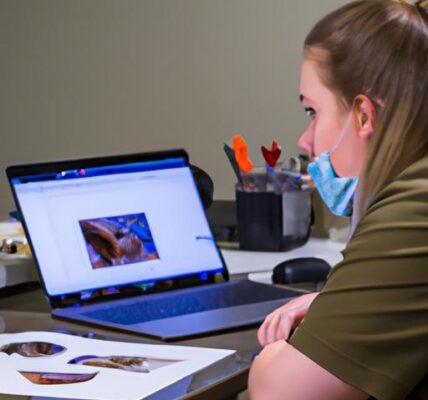Introduction
As we delve into the realm of healthcare, the role of pharmacy technicians shines brightly, serving as a crucial link between pharmacists and patients. These skilled professionals play a vital role in ensuring the safe and efficient dispensing of medications. But what sets a proficient pharmacy technician apart from the rest? The answer lies in the foundation of their education and training – the schooling for pharmacy techs.
A. Overview of Pharmacy Technician Profession
The pharmacy technician profession is a dynamic and rewarding field that requires a blend of technical knowledge, interpersonal skills, and attention to detail. From assisting pharmacists in preparing prescription medications to providing exceptional customer service, pharmacy technicians are indispensable members of the healthcare team.
B. Importance of Proper Schooling for Pharmacy Techs
Proper schooling lays the groundwork for success in the pharmacy technician profession. Through comprehensive education and hands-on training, aspiring pharmacy techs can acquire the skills and knowledge needed to excel in their roles. Whether pursuing a diploma, certificate, or degree program, the right schooling can pave the way for a fulfilling and prosperous career in the healthcare industry.
Requirements for Becoming a Pharmacy Technician
A. Education and Training
Education and training serve as the cornerstone of a successful career as a pharmacy technician. Most employers require candidates to have a high school diploma or GED as a minimum educational requirement. However, completing a formal education program in pharmacy technology from an accredited institution can provide a more comprehensive understanding of the profession. These programs typically cover topics such as pharmacy law, medication dosage calculations, and pharmacology to equip students with the necessary skills for the role.
B. Certification and Licensing
In addition to education and training, certification and licensing are essential components of becoming a pharmacy technician. Many states require pharmacy technicians to be certified by passing the Pharmacy Technician Certification Exam (PTCE) or the Exam for the Certification of Pharmacy Technicians (ExCPT). Obtaining certification demonstrates proficiency in the field and can enhance job prospects and earning potential. Furthermore, some states also mandate licensure, which involves meeting specific criteria set by the state board of pharmacy. By fulfilling these requirements, aspiring pharmacy technicians can establish themselves as competent and qualified professionals in the healthcare industry.
Benefits of Formal Schooling for Pharmacy Technicians
A. Improved Job Opportunities
Embarking on the journey of formal schooling for pharmacy technicians opens up a plethora of job opportunities in various healthcare settings. With the increasing demand for pharmaceutical services, trained and educated pharmacy technicians are highly sought after by retail pharmacies, hospitals, long-term care facilities, and more. A formal education not only enhances your qualifications but also increases your chances of securing a rewarding job in the competitive healthcare industry.
B. Higher Salary Potential
One of the key benefits of investing in formal schooling for pharmacy technicians is the potential for higher earning potential. According to the Bureau of Labor Statistics, certified pharmacy technicians with formal education and training tend to command higher salaries compared to their non-certified counterparts. By acquiring the necessary skills and knowledge through a structured education program, you can position yourself for better-paying opportunities and financial stability in your career.
C. Enhanced Skills and Knowledge
Formal schooling provides pharmacy technicians with a solid foundation of skills and knowledge that are essential for success in the field. From understanding pharmaceutical terminology to mastering medication dispensing techniques, a well-rounded education equips you with the tools needed to excel in your role. Additionally, formal schooling offers hands-on training opportunities, allowing you to hone your practical skills and gain real-world experience that will set you apart as a competent and confident pharmacy technician.
Choosing the Right School for Pharmacy Technician Training
A. Accreditation
When embarking on your journey to become a pharmacy technician, selecting a school with proper accreditation is paramount. Accreditation ensures that the institution meets stringent quality standards and adheres to industry best practices. Look for programs that are accredited by recognized bodies such as the Accreditation Council for Pharmacy Education (ACPE) to ensure that your education will be recognized and respected by employers.
B. Curriculum and Course Offerings
The curriculum and course offerings of a pharmacy technician program play a crucial role in shaping your education and preparing you for success in the field. Evaluate the courses offered, ensuring they cover essential topics such as pharmacy law, pharmacology, dosage calculations, and medication dispensing. Look for programs that provide a well-rounded education that aligns with industry standards and trends to equip you with the skills needed to thrive as a pharmacy technician.
C. Hands-On Training Opportunities
Hands-on training is a vital component of pharmacy technician education, allowing students to apply their knowledge in real-world settings. Seek out programs that offer practical training opportunities, such as internships, externships, or clinical rotations in pharmacies or healthcare facilities. These hands-on experiences not only enhance your skills but also provide valuable insights into the day-to-day responsibilities of a pharmacy technician, preparing you for a successful career in the field.
Tips for Success in Pharmacy Technician Schooling
A. Time Management
Mastering the art of time management is essential for thriving in pharmacy technician schooling. With a packed schedule of classes, assignments, and practical training, effective time management skills can make all the difference. Create a study schedule, prioritize tasks, and set realistic goals to stay on track and make the most of your educational journey.
B. Study Techniques
Different study techniques work for different individuals, so it’s important to find what works best for you. Whether it’s creating flashcards, participating in study groups, or using mnemonic devices, exploring various study techniques can enhance your retention and understanding of course material. Experiment with different strategies to discover the approach that maximizes your learning potential.
C. Networking and Professional Development
Building a strong network and investing in professional development opportunities can augment your success in pharmacy technician schooling. Engage with classmates, instructors, and industry professionals to expand your knowledge, gain insights, and create potential career connections. Additionally, seek out workshops, seminars, and certifications to stay current with industry trends and enhance your skills as a pharmacy technician.
Conclusion
In conclusion, the journey towards becoming a skilled pharmacy technician begins with the right education and training. By enrolling in a reputable school for pharmacy techs, you can equip yourself with the necessary skills and knowledge to thrive in this dynamic profession. Remember, proper schooling not only enhances your job opportunities and salary potential but also fosters personal growth and professional development.
As you embark on this exciting career path, seize every opportunity to learn, grow, and connect with fellow pharmacy professionals. Stay curious, stay committed, and never underestimate the power of continuous education. With dedication and a solid educational foundation, you can chart a successful course in the ever-evolving landscape of healthcare as a proficient pharmacy technician.



